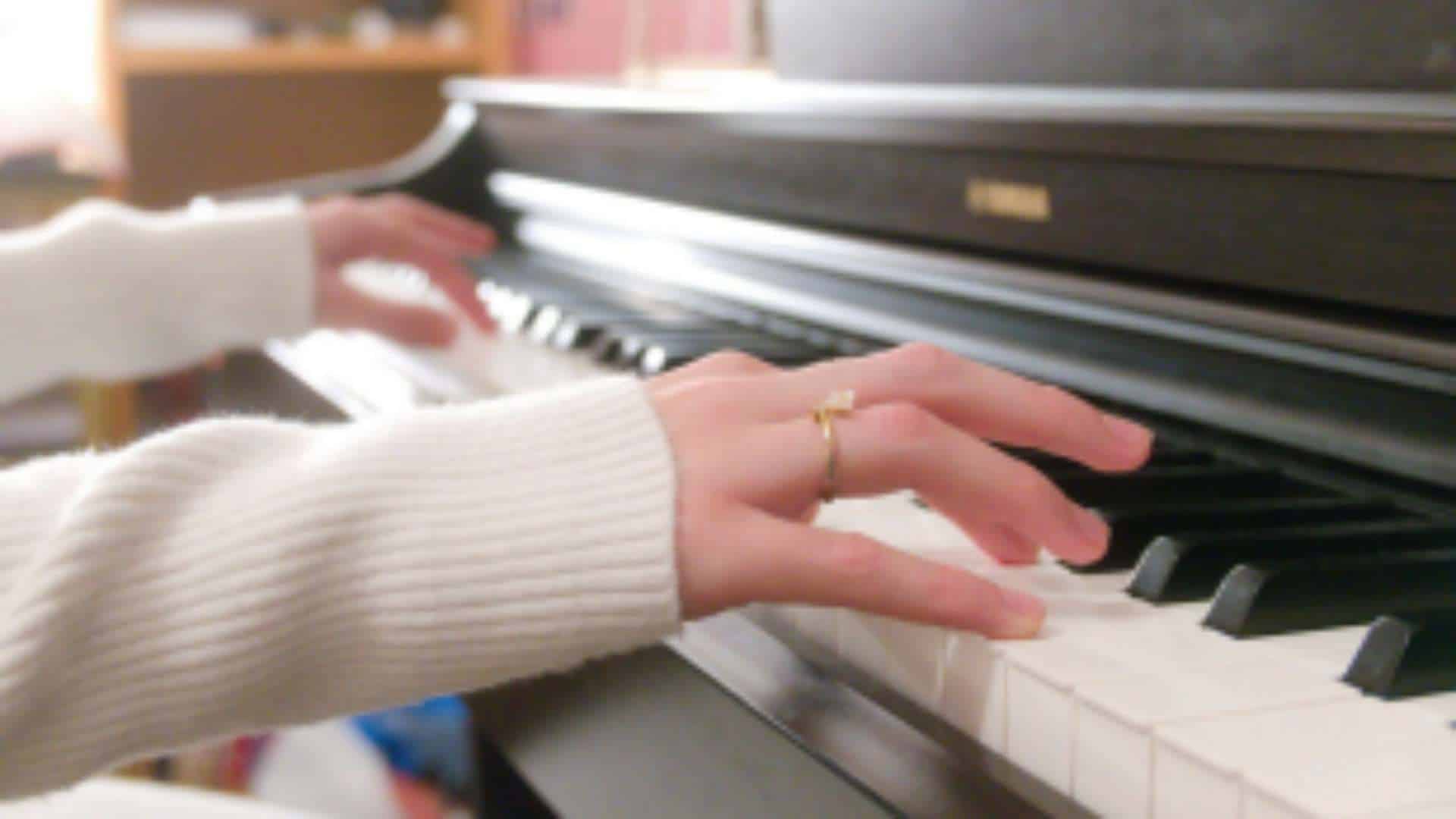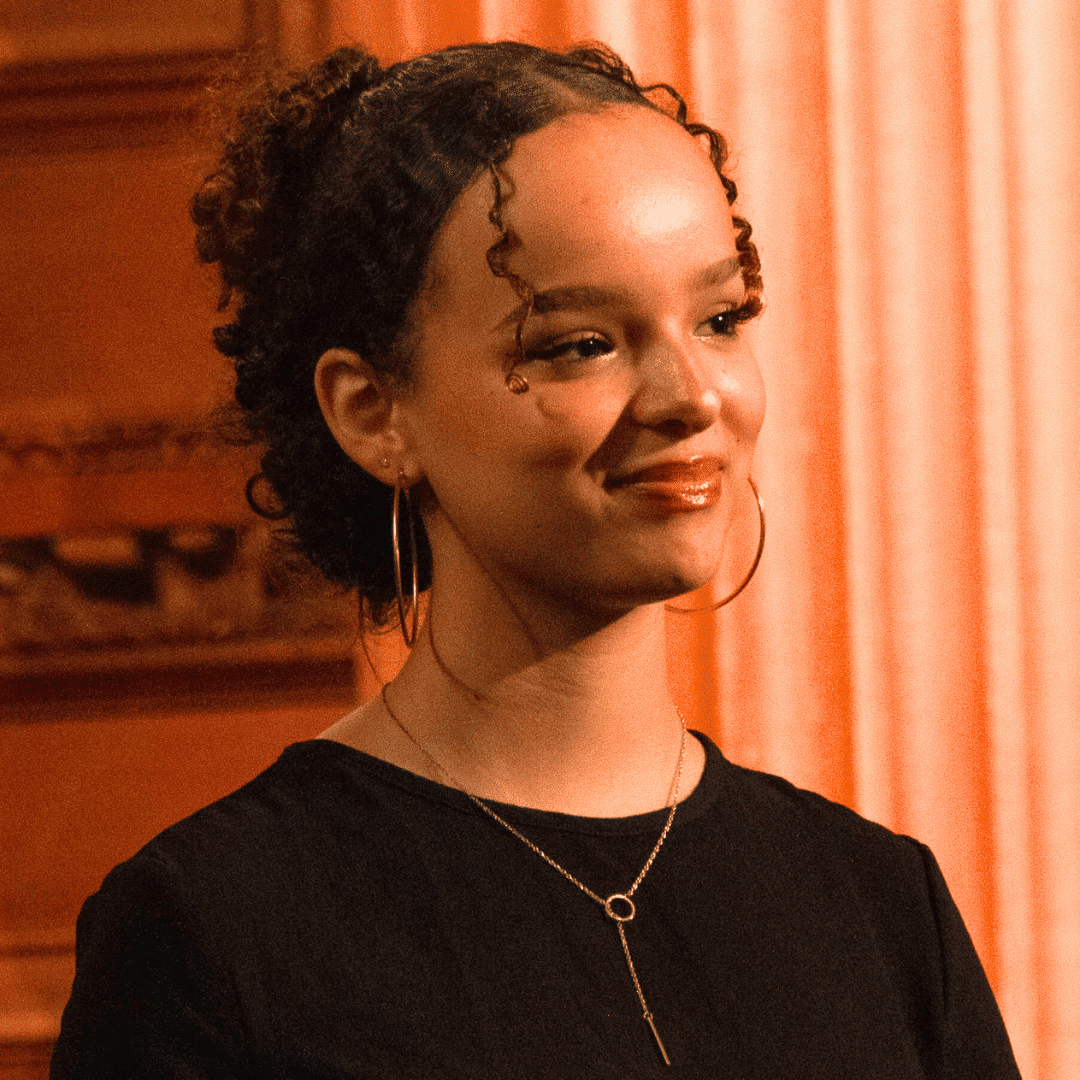In studying in France I learned something I didn’t expect. Back home we all rush around so much we miss what’s most important: The life around us.

The hands of the author’s host sister at the piano keyboard. (Photo by Amanda Dominique-Santos)
This article, by high school student Amanda Dominique-Santos, was produced out of News Decoder’s school partnership program. Amanda is a student at School Year Abroad, a News Decoder partner institution. Learn more about how News Decoder can work with your school.
Spending my senior year of high school in France has felt like learning to see for the first time, as though my vision had always been slightly blurred, and now every detail — the play of light on stone, the cadence of voices, the echo of footsteps on cobblestones — has become achingly clear.
If there is one lesson I will carry with me from this year, it is this: life is not a series of goals to be achieved, but a slow unfolding to be savored.
Back home in the United States, life often feels like a race — a never-ending scramble that offers little opportunity to pause and truly experience the present.
In France, meals stretch on for hours, not because they must, but because they can. People linger over their wine, their laughter, their silences. There is no rush to fill the space between moments. There’s no urgency to fill every silence or maximize every second. Life isn’t something to conquer; it’s something to experience. It’s understood that the beauty of life lies not in its milestones but in its quiet, unhurried rhythm.
During my time here, I learned that France is a country that honors quietude in a way that I find deeply restorative. Solitude here feels sacred, it’s not isolation; not something to be avoided or feared, but embraced. In the afternoons, I walk through cobblestone streets, the air thick with the scent of cigarettes and damp stone.
There’s no rush, no urgency to prove my place in the world. Instead, there is space — space to breathe, to think, to simply be.
The power of solitude
I’ve spent hours watching people sit alone at cafés, unhurried and unconcerned, engrossed in a book or simply watching the world. The Parc du Thabor teems with people, but not with noise. They stroll, they sit, they breathe — a quiet rhythm that reflects an unspoken reverence for the raw, unfiltered moments of being human.
Within my own solitude, I’ve begun to notice the things I used to overlook: the rhythm of footsteps as they pass, the way a tree casts its shadow like lace on the pavement, the bright chime of a carte KorriGo on the bus scanner. These moments feel weightless yet still profound as if they are both fleeting and eternal. They remind me that to truly see the world, you must first make peace with your own stillness.
In the United States, solitude often carries a stigma — a loneliness to be avoided. Here, I’ve discovered its power. It is in this stillness that I’ve come to understand myself better. Back home, life felt like a relentless current, dragging me forward without pause. Here, solitude is a kind of mirror, reflecting not just who I am but who I’ve been, and who I might become.
It has taught me that to truly see the world, you must first make peace with its stillness. The act of being alone, of truly slowing down and letting the world envelop you, has become a way to reconnect — with myself, with the world around me and with the subtle, often overlooked beauty of just being.
In my host family, the definition of family feels expansive and alive, like a river flowing freely, carving its course in the landscapes of our days. There’s no rigidity, no frantic choreography of schedules. Instead, there is a rhythm that feels organic, a tide that rises and falls in unison.
Finding family in France
As an only child, the presence of siblings in my host home stands out, like a new, unexplored dimension of family life. My host sister often practices piano in the early morning, her notes drift through the house like sunlight filtering through curtains — soft and golden, yet insistent in their presence.
I find myself sitting quietly, listening, letting the music fill the space between us. Sometimes I join her, harmonizing to songs I don’t fully know yet, and our voices weave together like threads of an unfinished story.
These moments have redefined family for me. It is not bound by blood, but by the act of being present, of witnessing each other’s lives, one shared breath at a time. It is in the glance exchanged over a meal, the laughter that lingers in the air long after the joke has passed, the warmth of someone practicing music while you fold into yourself in the next room.
It is these fragments of time — small and steady — that etch themselves into your soul, and make you feel, for the first time, truly at home. These moments — simple, unspectacular — have bound us more tightly than I thought a few short months could.
More than anything, this year has shown me how profoundly we are shaped by our experiences. In France, I’ve become an observer of people — not just in the way of an actor studying a role, but as someone marveling at the quiet choreography of existence. Each person I pass on the street is a story in motion, shaped by years of joy and grief, triumph and loss.
Slowing time down
I think often of a woman I saw one afternoon in Saint-Malo, sitting on a weathered bench by the water. Her cigarette hung loosely from her fingers, her gaze fixed on the horizon. There was a stillness to her, not just in her posture but in the air around her, as if time had paused to allow her this moment of reflection.
Her story was a mystery, but I could feel it — layered in the lines on her face, the deliberate way she exhaled smoke, the way her eyes softened when the wind carried the scent of the sea. Was she reminiscing? Planning? Mourning? I’ll never know, but her stillness spoke volumes. Every gesture, every pause, seemed to carry the weight of her experiences.
Watching her, I thought about how every gesture we make carries the weight of the lives we’ve lived. We carry them in our posture, in the cadence of our speech, in the pauses between our words.
We are not blank slates, but weathered pages, each marked by the stories we’ve lived, the places we’ve been, the people we’ve loved, the moments that broke us and the ones that pieced us back together, the ink of our experiences fading and deepening over time. It is this accumulation, this invisible weight of being, that makes us who we are.
It was during my time in France that I came to see that we are all reflections of the world around us, and the world is a reflection of us.
Questions to consider:
- In what way has France seemed different from the United States for the author?
- What did the author gain when by going to cafes by herself?
- Are you comfortable being by yourself without being connected to electronics? In what way?

Amanda Dominique-Santos is a senior at Phillips Academy currently spending her year in Rennes, France with School Year Abroad. Raised in a multicultural household in Massachusetts by teacher parents, she speaks Spanish and Portuguese. Highly passionate about the arts, Amanda enjoys acting, music and dance, embracing both cultural and creative experiences.
